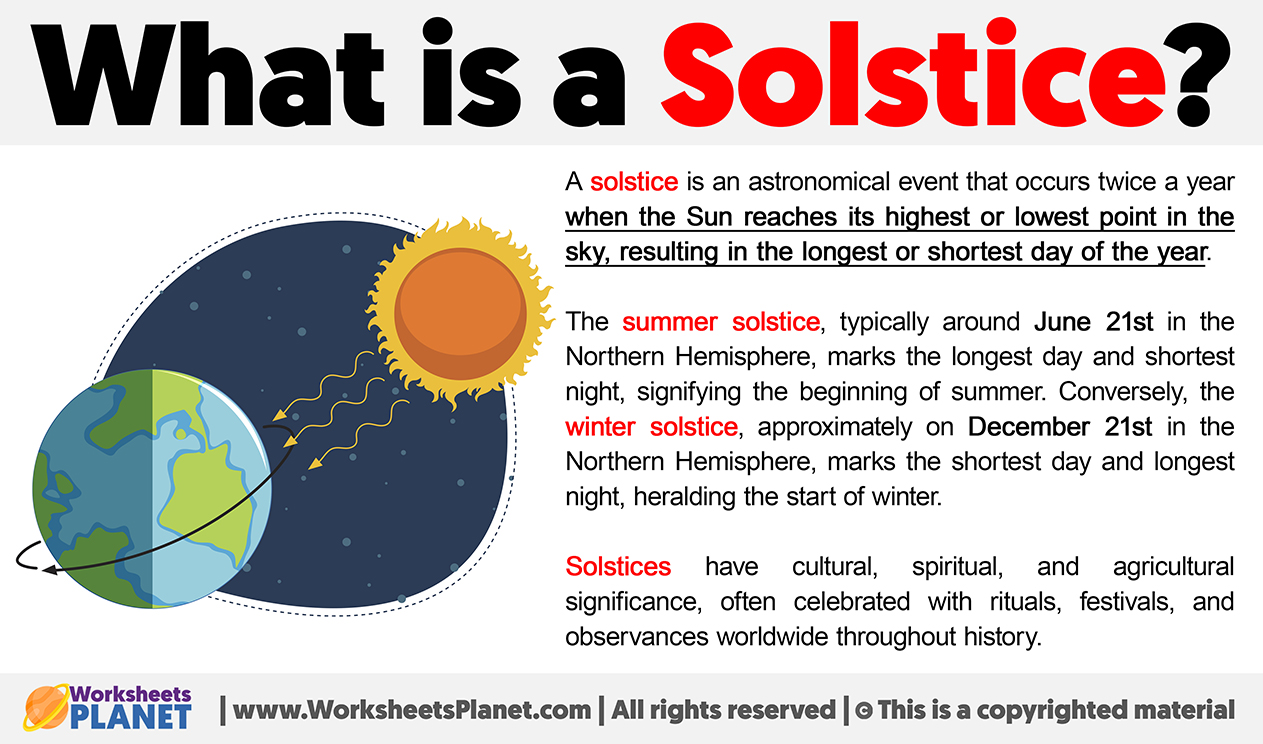A solstice is an astronomical event that occurs twice a year when the Sun reaches its highest or lowest point in the sky, resulting in the longest or shortest day of the year.
The summer solstice, typically around June 21st in the Northern Hemisphere, marks the longest day and shortest night, signifying the beginning of summer. Conversely, the winter solstice, approximately on December 21st in the Northern Hemisphere, marks the shortest day and longest night, heralding the start of winter.
Solstices have cultural, spiritual, and agricultural significance, often celebrated with rituals, festivals, and observances worldwide throughout history.


